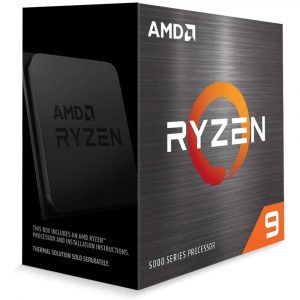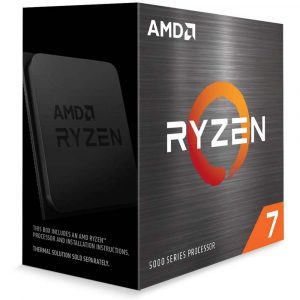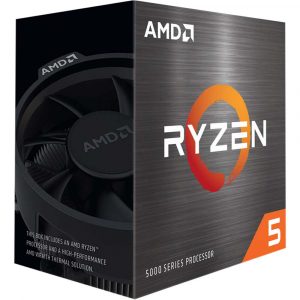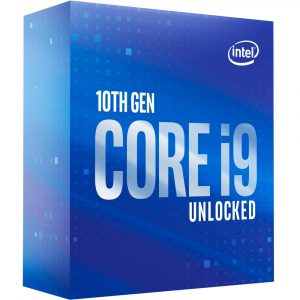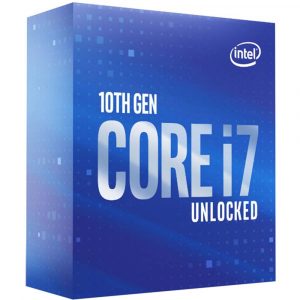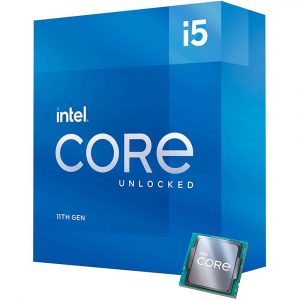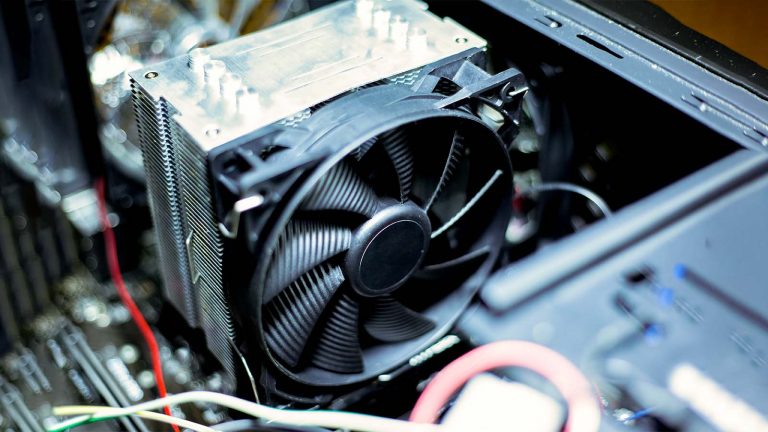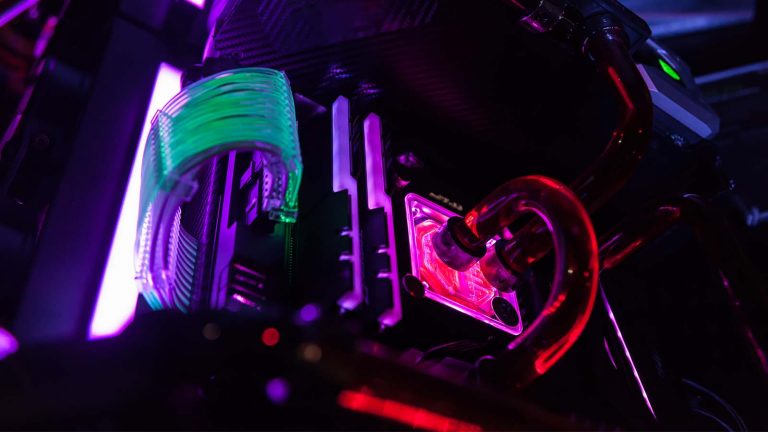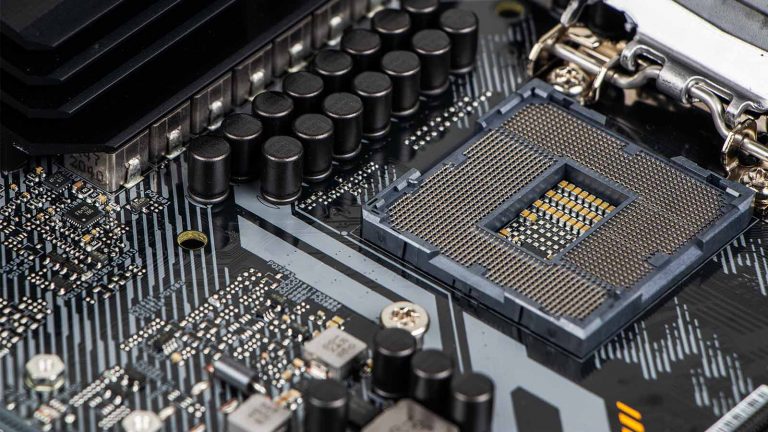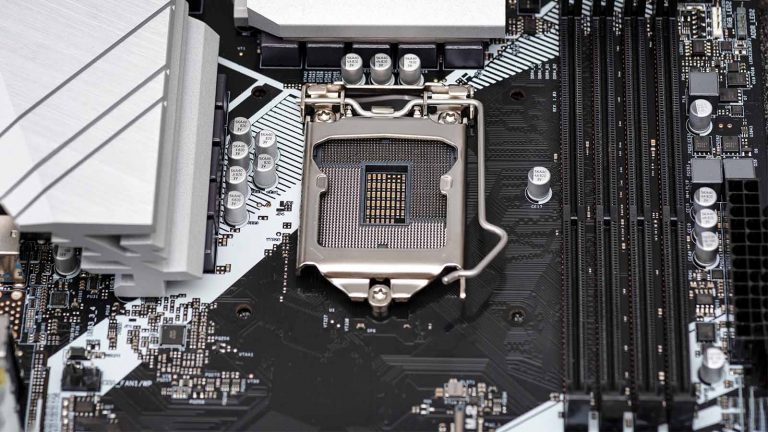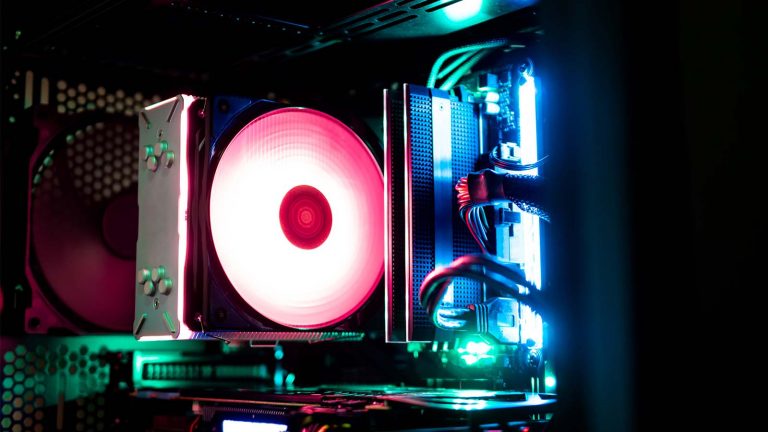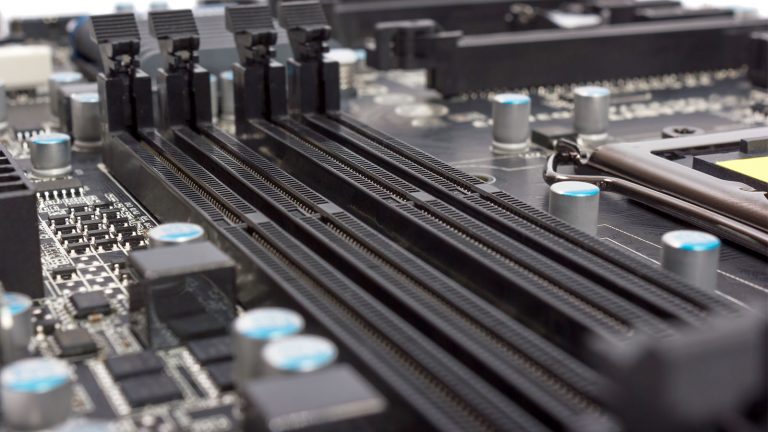6 Best CPUs for RTX 3080 in 2025
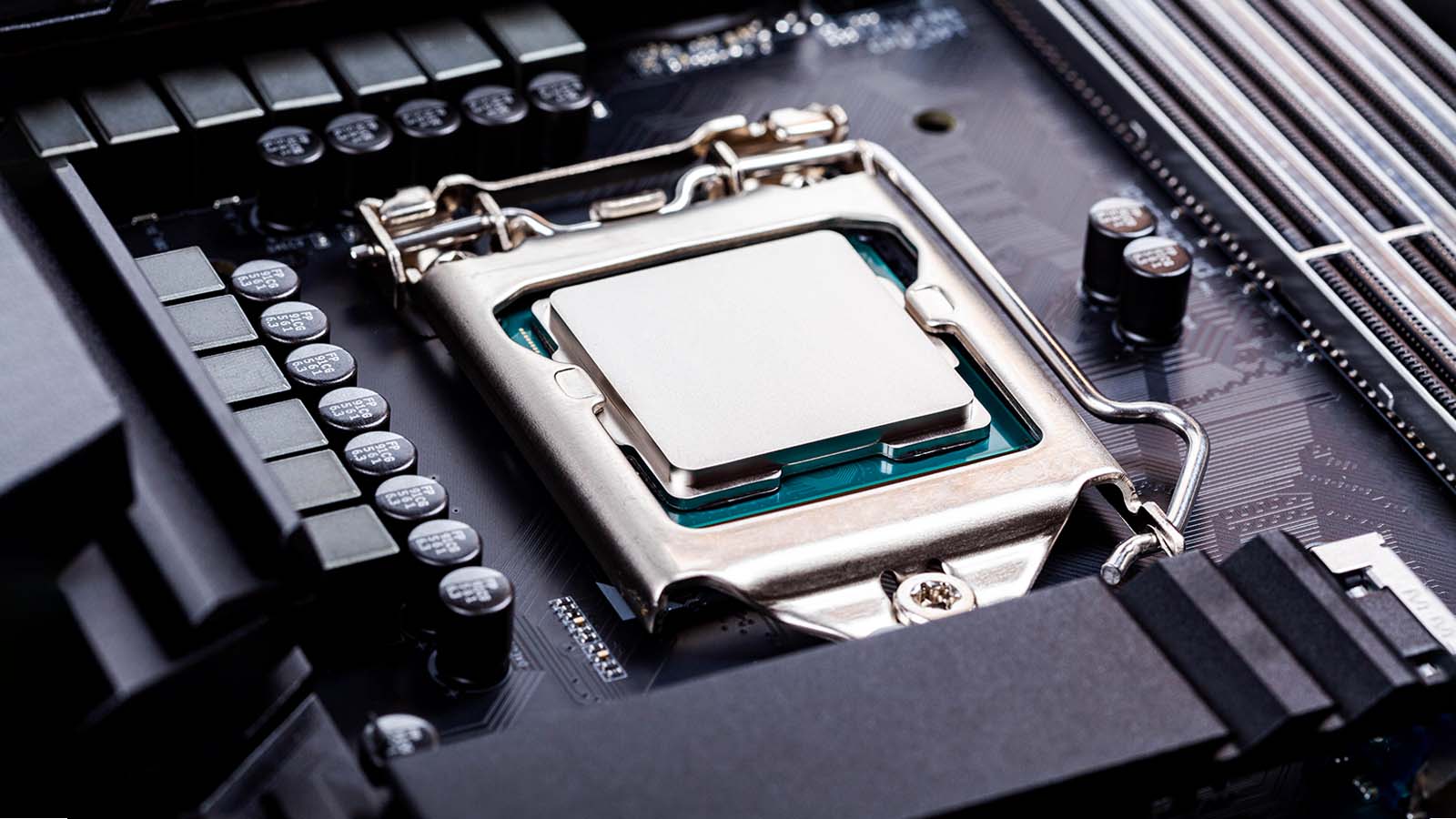
The first batch of RTX cards introduced us to the splendor of ray-traced vistas, bringing the industry another crucial step closer to photorealism. The 3000-series, on the other hand, trades groundbreaking new features for strong framerate leaps, with the 3080 being the first GPU that makes streamlined 4K gaming at 60+ framerates feasible. Count yourself lucky if you can find it at a reasonable price since the wait has been worth it.
A powerhouse like that doesn’t need an exorbitantly expensive CPU to reach its limits at 4K. However, you’ll still want to weigh your options for gaming at lower resolutions and if you plan to use the PC for other things as well. These are the best CPUs for RTX 3080 out on the market today, split by manufacturer and price for more straightforward navigation. See what makes each of them tick and get the processor that meshes best with your needs.
Best High-end AMD CPU for RTX 3080: Ryzen 9 5900X
Are you a content creator, video editor, or 3D artist who needs a blazing-fast PC to use for work first and top-tier gaming second? In that case, AMD’s second most powerful chip of the landmark Zen 3 generation should fit your needs perfectly. It has a considerable edge over the 10900K in most productivity-focused applications and keeps up with Intel’s flagship in the once uncontested realm of gaming.
There’s a sizeable price gap between our recommendation and AMD’s mightiest processor, the 5950X. Purchase the latter only if you need even greater computing power for running complex calculations, maintaining multiple virtual machines, or something similarly demanding.
AMD’s 5000-series processors mostly resemble their respective 3000-series counterparts when viewing their most basic stats. For example, the 5900X has the same number of cores & threads as the 3900X it is replacing. The efficient 105W TDP remains unchanged too. A glance at the main specs suggests that only the base and boost core clock speeds have been lowered by 100MHz and raised by 200MHz, respectively.
The augments made to the chip’s underlying architecture do more to explain its performance uplift. On the one hand, AMD has performed numerous tweaks to various parts of the CPU structure to improve IPC. On the other, the core layout has changed. There were previously up to four cores per Core Complex or CCX, with two of these complexes sharing one die. Eight cores now fit onto a single CCX and share 32MB of L3 cache between them. Four of them are disabled on one die for this particular processor.
While AMD says that the IPC increase amounts to around 19%, the actual numbers are even better when you pit the 5900X against its predecessor and Intel’s main competitor. That applies mostly to gains in tasks like code compiling, Photoshop, or rendering. Gaming tests see the chip approaching the 10900K, winning a few victories and getting a fair share of draws.
Best Mid-range AMD CPU for RTX 3080: Ryzen 7 5800X
Our mid-tier AMD pick is the epitome of balance. It’s a better prospect for gamers than the 5900X due to its price, yet doesn’t take much longer when asked to perform multithreaded work. It is energy-efficient, doesn’t get nearly as hot as Intel’s chips, and is sure to satisfy the vast majority of users interested in assembling a rig that can take on any project with ease.
The 5800X is a tempting buy when assembling a new system, but existing Team Red supporters have reason to pick it up as well. Unlike Intel’s shift from LGA 1151 to LGA 1200, buying it brings no need to invest in a new motherboard if you have an X470 model and a few minutes to get its BIOS up to snuff. You can also keep your old processor’s cooler since the new one doesn’t ship with one. Not that you’ll have to spend much if you don’t have one since overclocking is possible even with mid-range aftermarket fans.
The layout enhancements mentioned above allow the chip to have a single die with eight cores working in unison. This drastically cuts down on the latency quartets of them experienced in previous generations when communicating. You’ll see the greatest payoff in both artificial and real-life use cases that don’t rely on multithreading, but even it is affected positively.
What can you expect then? On the one hand, the 5800X performs much better than the last-gen chip when handling complex data used for machine learning or physics simulations. On the other, it’s only slightly behind the 10900K and 10700K in terms of raw FPS at 1080p. The playing field is even more level if you crank the resolution up to 1440p and 4K. That’s what you should be doing anyway with a 3080 under the hood unless you’re playing competitive multiplayer games.
Best Budget AMD CPU for RTX 3080: Ryzen 5 5600X
While not exactly cheap, the 5600X is AMD’s most affordable Zen 3 CPU so far. It’s also the ideal candidate if you’re putting together a high-performance computer focused on 1440p gaming. The chip is marvelously power-efficient and performs right up there with its more expensive siblings when tested in various games.
This is the first time our CPU overview shows a significant tech spec difference brought on by a Ryzen generational jump. The current chip has a lower Thermal Design Power or TDP, which decreased from 95W to 65W. That makes the 5600X a prime candidate for overclocking since it doesn’t consume much power even when firing on all cylinders. Better yet, pushing the processor doesn’t unreasonably raise its temperatures either. You’ll want to go for something better than the stock Wraith cooler if you’re going down that road, though.
Zen 3 might be an iterative update, but that doesn’t mean that minor adjustments can’t amount to bigger gains. You can see them in several parts of the manufacturing and chop design process. We’ve already talked about latency reduction, but there’s also the bevy of changes made to the branch predictor or components that handle integer and float-point calculations.
The average user will experience these as tangible benefits across the board if they’re coming from a 3600X. Equally impressive is its ability to keep up with Intel mainstays like the 10700K in pretty much any game you throw at it regardless of resolution. More overclocking headroom gives Intel’s chip the edge, but it’s also harder & more expensive to achieve.
Best High-end Intel CPU for RTX 3080: Core i9-10850K
It’s currently next to impossible to get many CPUs and graphics cards at their suggested street prices. One processor remains blissfully unaffected so far, offering performance a hair’s breadth under the 10900K while costing much less than their initial $50 price difference. You’re likely never to notice the 100MHz decrease. Still, the potential to up the overall quality of your build with all the money you’ll be saving is sure to stay memorable.
Don’t mind paying extra and giving up integrated graphics? Then feel free to go with the 10900KF. We wouldn’t recommend splurging on the 11900K unless you can somehow get it cheaper than the 10900K since it offers no tangible gaming improvements while coming with a host of problems.
Most processors we discuss in this overview occupy a carefully chosen price bracket where they stand against similarly-specced offerings from the competitor. Not so with the 10850K. It undercuts the 10900K and is simultaneously a tempting buy for people eying the 10700K with a few more bucks to spare. One look at its base specs will tell you why. Everything’s the same as the 10900K – ten cores & twice as many threads, 20MB of L3 cache, and the 125W TDP. A 100MHz clock cut across the board is the only thing that’s worse.
Yes, that means that this more than reasonably-priced processor also has the 10900K’s three boost modes and core arrangement that hasn’t budged since Skylake. Overclocking is particularly interesting as it’s the primary way of attaining better results. Its first stage will deliver an overall boost, while the second identifies the two best-performing cores and ramps them up to 5.1GHz. You’ll need serious cooling hardware to pull stage three off but can look forward to 5.2GHz if you have it.
As expected, this might as well be a mislabeled 10900K since the differences reported by gaming and productivity benchmarks alike are academic. In other words, you’re getting a CPU that frequently takes point in games at 1080p while giving AMD the lead in applications that better utilize multithreading.
Best Mid-range Intel CPU for RTX 3080: Core i7-10700K
Intel’s i7 processors have become synonymous with gaming excellence, and the same is true for the Comet Lake representative. It’s more power-efficient than the 10900K, yet all but matches it in most gaming scenarios. Add the fact that it’s considerably cheaper, and you’ve got a CPU that gives Team Red a run for its money.
The 11700K is a tempting alternative. Choose it if you plan on purchasing a PCIe 4.0 SSD or want better productivity chops. Spending the extra cash for gaming alone is pointless since you have to travel farther down Rocket Lake’s lineup to see tangible advances.
A glance at the 10700K’s headlining specifications is proof that Intel needed to step its game up in the mid-range to keep pace with AMD. You’d think you were looking at a rebranded i9-9900K, judging by the presence of Hyperthreading and a bigger L3 cache. The socket is different, requiring you to purchase a Z490 or Z590 motherboard. You may probably keep your expensive CPU fan if you’re upgrading from LGA 1151, as most will still fit.
Bigger numbers in the stat sheet are also an indicator of Intel’s uplift strategy. Rather than ditching the aging 14nm manufacturing process, the focus is on achieving better speeds while keeping thermals in check. The silicone die is thinner to that end, allowing for a thicker integrated heat spreader and correspondingly lower temperatures.
The 10700K’s thermals are close to competing chips, and the same is true for most other stats. It can’t hold a candle to the 5800X for work or content creation purposes, but it remains the CPU to watch out for in gaming. Most impressively, it has little trouble staying close to the 10900K while costing considerably less.
Best Budget Intel CPU for RTX 3080: Core i5-11600K
Rocket Lake didn’t make the cut for two of our Intel categories. Still, it’s heartening to see that the generation’s mid-range offerings are more palatable. You’ll get a lot of use out of our budget pick whether you game exclusively or want a Team Blue CPU that doesn’t shy away from the competition when multithreaded work needs doing.
That being said, the 10600K is still well worth your consideration. It is only slightly less capable when it comes to gaming and doesn’t get as hot as the newer model.
You’d think you were looking at two recent generations of AMD processors when comparing the 11600K and 10600K because of how similar they are on paper. The telltale signs are there, including the same core count & TDP and only slight clock speed rearrangements. Astute readers may be thinking that this has to do with a change in approach to performance gains, and they’d be right.
Intel is aware that adding another plus behind their 14nm architecture can’t cut it anymore and has already adopted 10nm dies for the generation’s mobile CPUs. No such production shifts were made to Rocket Lake. Intel did manage to take the knowledge gained from designing its mobile processors and leverage it to make the most substantial changes the 14nm process has seen since its introduction. Like AMD’s recent refinement efforts, the resulting tweaks to various parts of the chip’s fundamental makeup yield improvements in IPC.
Most of the 11600K’s gains are evident in synthetic benchmarks and rendering. There you’ll see it fly past the 10600K and match the 5600X, a rare feat for an Intel CPU these days. You’re more likely to buy the chip due to how well it does in 1440p gaming, where it’s as good as or better than the 5600X.
Frequently Asked Questions
What CPU will bottleneck an RTX 3080?
None of our recommended CPUs will bottleneck the 3080 to the degree that you’d feel it impact the way a game plays. There are currently no games this GPU couldn’t run at triple-digit framerates in 1080p, where bottlenecking is the most likely to occur. Even our “weakest” entries bring the potential frame cap down by 10% compared to the top-end ones.
It’s somewhat counterintuitive, but this means that you’re better off investing in a strong CPU if your monitor has an insane refresh rate and you want to reach 300+ frames in multiplayer shooters or MOBAs while keeping settings low. Everyone else will switch to 1440p or 4K, where the processor plays a progressively smaller part for max framerates, or not care in the first place.
Is Ryzen 5 5600X good for RTX 3080?
Gamers who don’t plan on using their PCs for any other resource-intensive tasks have no reason to invest in anything more expensive than the 5600X. As outlined above, its gaming stats are on par with more expensive models, while productivity only takes a modest hit. It’s an excellent value despite AMD’s generation-wide price increase.
How powerful is the RTX 3080?
The RTX 3080 is slotted to replace the 2080Ti. It shows double-digit percentage improvements over the older card, causing many games to breeze past 100 and 60 fps in 1440p and 4K, respectively. The price difference was supposed to also be in the 3080’s favor since its suggested MSRP is $500 lower than the 2080Ti’s. The ongoing GPU shortage makes it highly unlikely you’ll manage to get one at that price, so you might want to hold onto your current graphics card until things settle down.

